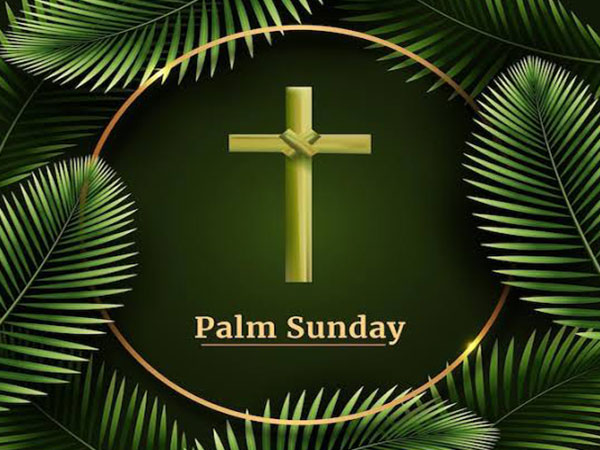CM Mamata flags off Christmas festivities
Chief minister Mamata Banerjee inaugurated the 13th edition of the Kolkata Christmas Festival at Allen Park late this afternoon.
The name Holy Week was used in the 4th century by St. Athanasius, bishop of Alexandria, and St. Epiphanius of Constantia. Originally, only Good Friday and Holy Saturday were observed as holy days.

Representation image [Photo:IANS]
Holy Week is an important time for Christians throughout the world. Holy Week, begins on Palm Sunday, the Sunday before Easter. It is a time when Catholics gather to remember and participate in the Passion of Jesus Christ. The Passion was the final period of Christ’s life in Jerusalem. It covers the span from when He arrived in Jerusalem to when He was crucified.
The name Holy Week was used in the 4th century by St. Athanasius, bishop of Alexandria, and St. Epiphanius of Constantia. Originally, only Good Friday and Holy Saturday were observed as holy days. Later, Wednesday was added as the day on which Judas plotted to betray Jesus, and by the beginning of the 3rd century, the other days of the week had been added. How Do Catholics Celebrate Holy Week?
Four special ceremonies commemorate the events of Christ’s Passion from His entrance into Jerusalem, when palm branches were placed in His path, through His arrest on Holy Thursday and Crucifixion on Good Friday, to Holy Saturday, the day that Christ’s body lay in the tomb.
Advertisement
1. Palm Sunday
Palm Sunday is the day when Christians commemorate Jesus going into Jerusalem on a donkey for the celebration of Passover. In the Bible, there were many people waiting for him to arrive, who spread out their cloaks in his path. Christian churches often celebrate Palm Sunday with a blessing and procession with palm leaves.
2. Maundy Thursday
Maundy Thursday marks the Last Supper, where Jesus ate with his disciples. It also commemorates a lesson Jesus taught that we should be humble and ready to wash each other’s feet as a sign that we are all equal. Some churches celebrate with a foot-washing ceremony. On Maundy Thursday, the Pope of the Roman Catholic Church washes the feet of 12 people to re-enact Jesus washing his disciples’ feet at the Last Supper.
3. Good Friday
According to the Bible, Good Friday is the day on which Jesus was put to death on the cross. Christians believe that he sacrificed his own life so that everyone could be forgiven for their sins. Some Christian or Catholic Easter week services are held on Good Friday, although some people mark the day by fasting. It is a day of sorrow, so church bells traditionally don’t ring and altars are left undecorated.
4. Holy Saturday
This is the day on which Lent traditionally ends. It marks the final day of Jesus’ death, which he spent resting in his tomb.
5. Easter Sunday
You might be familiar with Easter as a day of chocolate eggs, lambs and bunnies which celebrate the coming of spring. These are folk traditions, but the day also celebrates the resurrection of Jesus. According to the Bible, it marks the third day after Jesus was crucified when he rose from the dead.
Why is Palm Sunday important?
Palm Sunday is important to Christians because it is the beginning of Holy Week. On Palm Sunday, Jesus rode into Jerusalem and was celebrated by a large crowd. They believed that he was the saviour and king of humankind. However, Palm Sunday was also the day that brought on the Crucifixion. Palm Sunday is important, therefore, because the celebration of the crowd encouraged the Romans to kill Jesus on Good Friday. Many Christians believe that Jesus knew that he would be killed on the cross by the end of the week, but that the Lord told him to go to Jerusalem to sacrifice himself anyway.
Christians remember Jesus’ sacrifice on Palm Sunday. Many Christians celebrate with a special blessing and a procession of palm crosses. This is to remember the palm branches that the Bible says were spread in front of Jesus as he entered Jerusalem.
Advertisement